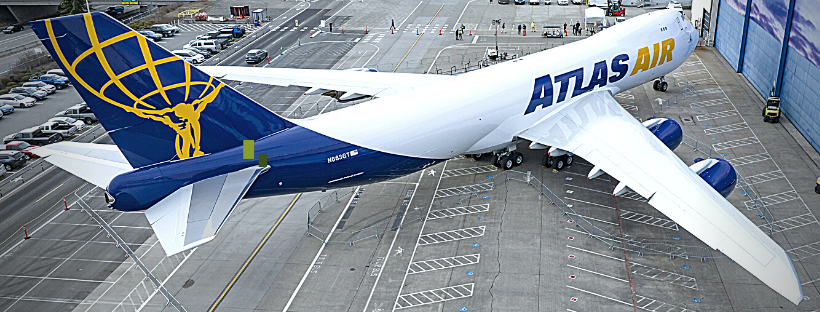The last ever 747 delivered to its customer by Boeing
Boeing and Atlas Air Worldwide joined thousands of people – including current and former employees as well as customers and suppliers – to celebrate the delivery of the final 747 to Atlas, bringing to a close more than a half century of production.
Boeing employees who designed and built the first 747, known as the “Incredibles,” returned to be honored at the Everett factory where the journey of the 747 began in 1967. The factory produced 1,574 airplanes over the life of the program.
Stan Deal, president and chief executive officer of Boeing Commercial Airplanes said
This monumental day is a testament to the generations of Boeing employees who brought to life the airplane that ‘shrank the world,’ and revolutionized travel and air cargo as the first widebody. It is fitting to deliver this final 747-8 Freighter to the largest operator of the 747, Atlas Air, where the ‘Queen’ will continue to inspire and empower innovation in air cargo.
John Dietrich, president and chief executive officer, Atlas Air Worldwide said
We are honored to continue our long history of flying this iconic aircraft for our customers around the world. Atlas Air was founded over 30 years ago with a single 747-200 converted freighter, and since then, we have spanned the globe operating nearly every fleet type of the 747, including the Dreamlifter, Boeing’s 747 Large Cargo Freighter, for the transport of 787 Dreamliner parts. We are grateful to Boeing for their shared commitment to safety, quality, innovation and the environment, and for their partnership to ensure the continued success of the 747 program as we operate the aircraft for decades to come.
As the first twin-aisle airplane and “jumbo jet,” the “Queen of the Skies” enabled airlines to connect people across vast distances and provide non-stop trans-oceanic flights.
Its development solidified Boeing’s role as an industry leader in commercial aviation. The aeroplane’s core design with its distinctive hump and seating in the upper deck has delighted generations of passengers and operators alike.
Boeing continued to improve on the original design with models like the 747-400 in 1988 and the final 747-8 model that was launched in 2005; across all the models, the jet has delivered unmatched operating economics and efficiency to travel and air cargo markets.
As a leading global aerospace company, Boeing develops, manufactures and services commercial aeroplanes, defence products and space systems for customers in more than 150 countries.








